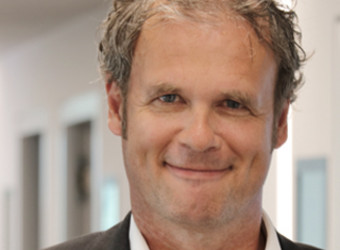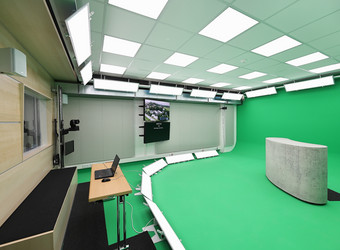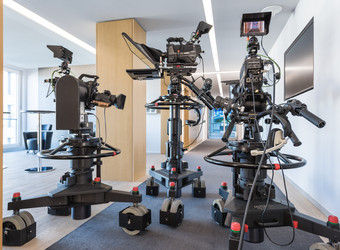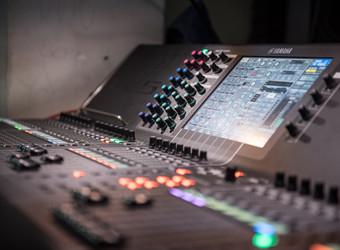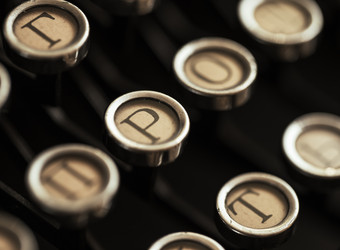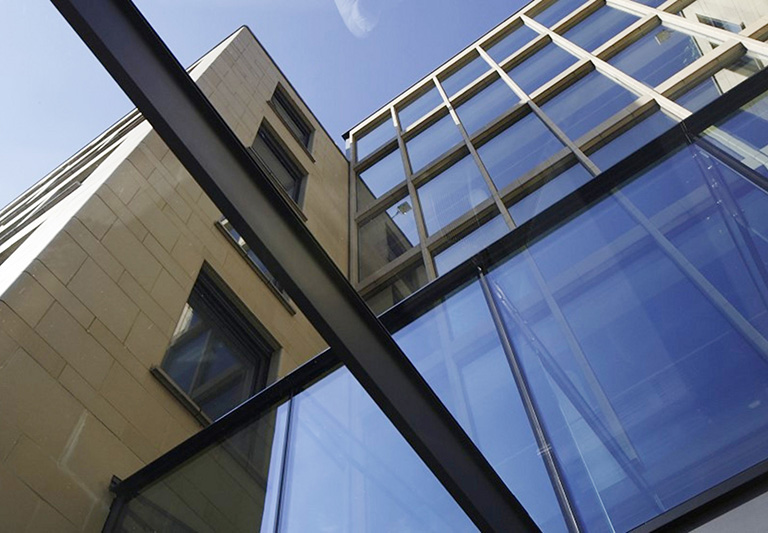Tips & tricks – How to optimally prepare your public appearance
Expert tips from mbw
mbw not only supports ist customers in the planning and implementation of events, but also offers individual training courses, including preparation for public appearances. Janina Singer editor at mbw GmbH, talks to Karen Just, former account manager for communication training, about the ideal preparation.
An important appointment is coming up. Nerves are fluttering. Your pulse is racing. Your hands are clammy and your stomach is raging like a hurricane. And all because a public appearance is imminent. Whether it's a customer presentation, a panel discussion or a presentation at a congress – even ”old hands“ are often still very nervous. In her many years of work as an account manager for communication training at mbw, Karen Just has developed many useful tips to help overcome the big nervous feeling.
Janina Singer: Many people who have to speak in front of others at some point are concerned about one big question: How do you get a handle on your stage fright?
Karen Just: It's a question of perspective. Stage fright is always seen as something negative – but that's not the case! Having a stage fright is good! Because it gets our body going, our brain working at full speed and it drives us to peak performance. Of course, it's important that stage fright doesn't get the better of us. It then becomes counterproductive and we can no longer think clearly.
How can you avoid stage fright getting the upper hand?
First of all, you shouldn't forget to breathe. It sounds so simple, but it's often done wrong. When your excitement rises, simply breathe in and out deeply and slowly a few times in a row. Concentrate on your breathing for a moment and feel in the air in your body as it flows in and out. It's been also proven to be a good idea to think of something nice during the excitement phase, e.g. your last vacation, people who are important to you or a moment you were completely happy.
Let's take a step back, to the preparation. It is always said that perfect preparation for a public appearance is the be-all and end-all. How do you prepare?
What gives you confidence is to go through the performance procedure several times in advance. This also includes finding out about the conditions on site, i.e. the exact location and the best way to get there. By public transport or by car? Are there parking spaces? You can usually find this information online.
After the lunch break, everyone has to be brought out of their soup coma
You can ask the organizer about things like the framework of the event and the number of participants. Who are they and what makes them tick? What does the room in which I will be performing look like? Can I cope with the technology? Who can I turn to if something goes wrong?
The order of the speakers is also important. It can be helpful for the content of the speech to know who is speaking before and after you and whether your presentation is more likely to take place at the beginning of the event, when everyone just wnats to go home. Or even after the lunch break, when everyone needs to be brought out of their soup coma.
You've just mentioned it: the audience you're stnading in front of is also not unimportant. Should or can you prepare for this?
Every audience is different and you should definitely be prepared for that. Finding out as much as possible about your audience is highly recommended. This starts with what expertise can be expected. It is also important to find out why people are listening to your presentation and what you hope to gain from it. But is also helps to know something about the interests, political views or lifestyle of the audience. This will allow you to adapt your presentation better and increase your chances of capturing and inspiring everyone.
The right outfit for a public appearance
How important do you think is the outfit your wear? Is it still relevant today?
In my opinion, the outfit is a fundamental issue. However, the dress code today depends on the industry. Generally speaking, the younger the industry, the more relaxed it is. In the start-up environment, sneakers and a casual look are the order of the day. If the appearance is in business, financial or political circles, a suit or at least jeans and a jacket for men and a suit or elegant combination of trousers and top for women are still common.
If you are not sure, you should ask the organizers or other insiders in advance what they recommend. The most important thing, however, is to feel comfortable in your clothes and be authentic.
What you should avoid are catching patterns and dominat jewelry, as this distracts the audience from the content.
In an emergency, I recommend having a second top in reserve. Nothing is more embarrssing than coffee stains, for example, and they alsways appear when you least need them.
Smile and looking forward to the performance
I've heard that the way you get to the stage and how you master it is of great importance or how the audience perceives you. What do you think about that?
Yes, it's the famous first impression. It's interesting to observe how people walk up to a podium or lectern. Some literally run or cling to their documents, giving the impression of uncertainty. Other stroll onto the stage very slowly to demonstrate how relaxed they are. None of these variations is ideal. The right pace is somewhere in the middle and, above all, you should find your own pace. Just take normal steps, smile, and look forward to the performance. And on stage, I recommend making eye contact with the audience. Then pause briefly and go!
And how do you rate posture in general terms of charisma?
That is also very, very important. It's best to stand upright but comfortably during the presentation. Keep both feet still and firmly on the floor and do not do any gymnastic exercises or fidget around. Above all, do not cling to the lectern, as this makes you look very insecure. Keep your head upright, not too high and not too low, and always try to make ey contact with the audience.
The voice often causes problems when you are on stage. What is your advice here?
Everyone has their own natural feel-good voice and you should try to find this pitch when you're performing. It's the voice you have when you're out with friends having fun. You should also find this pitch for your performance. If your voice trembles, it helps to take a deep, firm breath. A good exercise beforehand is to take a wine cork between your theeth and speak with it for a few minutes. Afterwards, your speech will be audibly clear and more distinct.
Mbw expert tips for the presentation
Before going on stage, you first have to work on the text – what is the difference between a good presentation and an average one?
A good introduction and a good conclusion are half the battle, then the part in between usually works as well. Today, everyone wants to be entertained a little. That's why I recommend making the dreist topics as exciting as possible, with a little anecdote or pictures and comparisons. If numbers cannot be avoided on the content, then they should be used homeopathic doses.
And the simpler the language, the shorter the sentences, the easier is is for your audience to remember what has been said. Targeted small pauses in speech create tension and help the audience to process what they have heard.
Ideally you should be able to deviate from the manuscript spontaneously if necessary. For example, you can respond to previous speaker or shorten content if you notice that people are bored and start playing around on their cell phones.
When writing, the question of what information the audience should retain in the end should always be at the forefront. You should also be prepared for possible critical questions.
One last good tip from you?
I actually have two more tips for public appearances:
- Take a trusted person with you. The companion is not only important for holding hands, but can also warn you before the performance if you have parsley between your teeth or a hair hanging somewhere it shouldn't be. A trusted person will also give you honest feedback afterwards.
- Always remain authentic. If you do or say something that does not suit you, people won't buy it and you'll loose credibility. You can be proud of your dialect for example. If you tend to speak a lot with your hands, then that's just the way it is.













